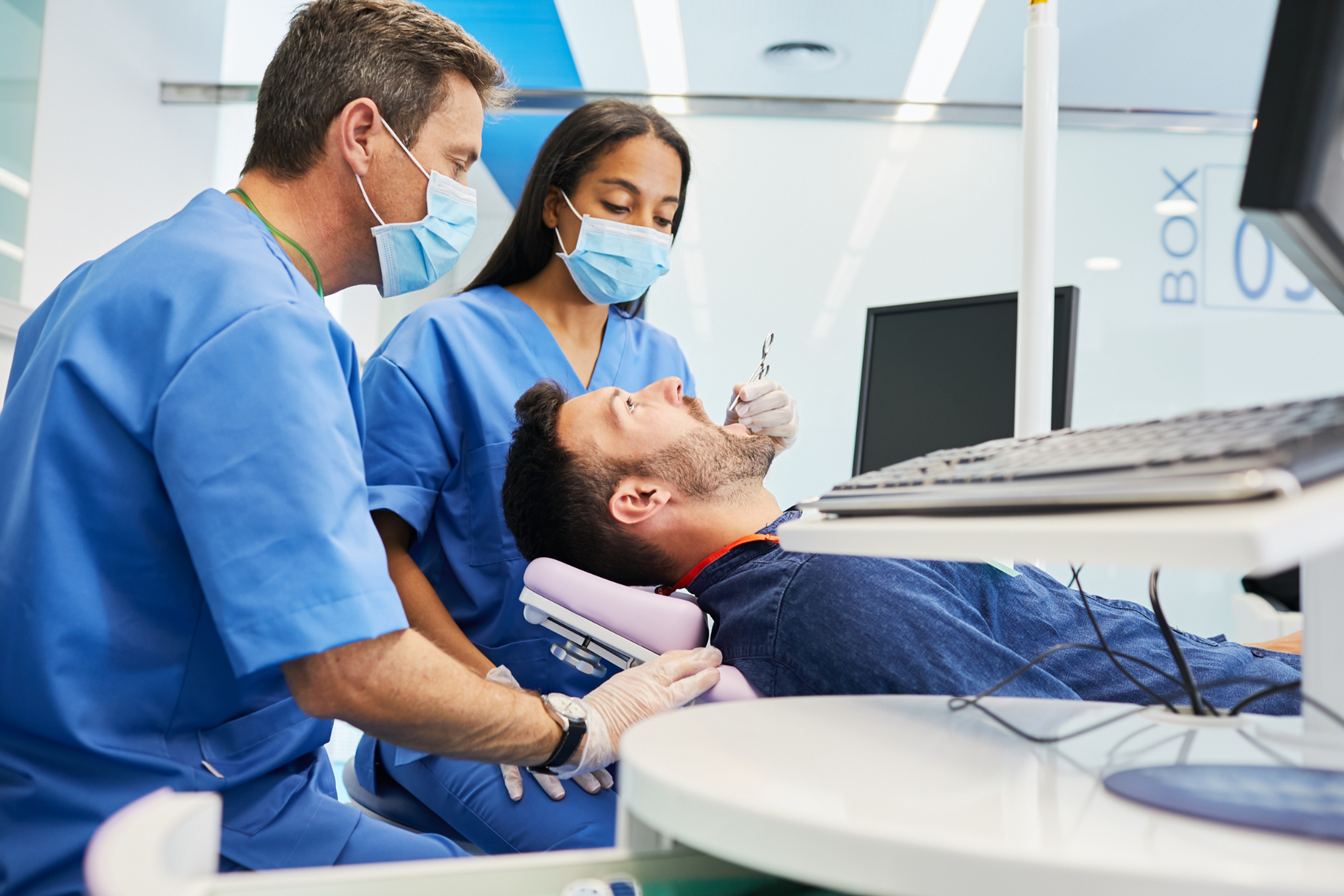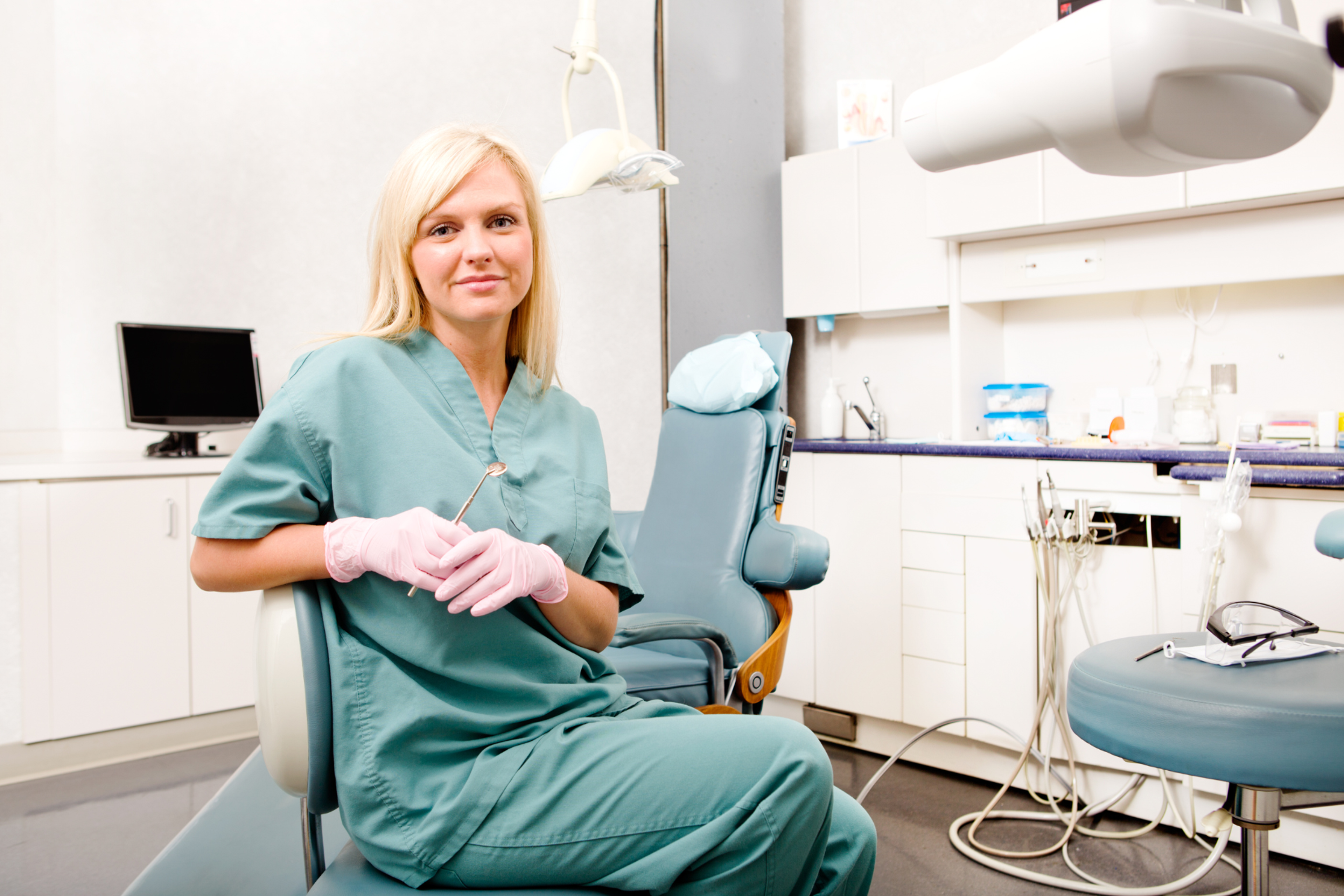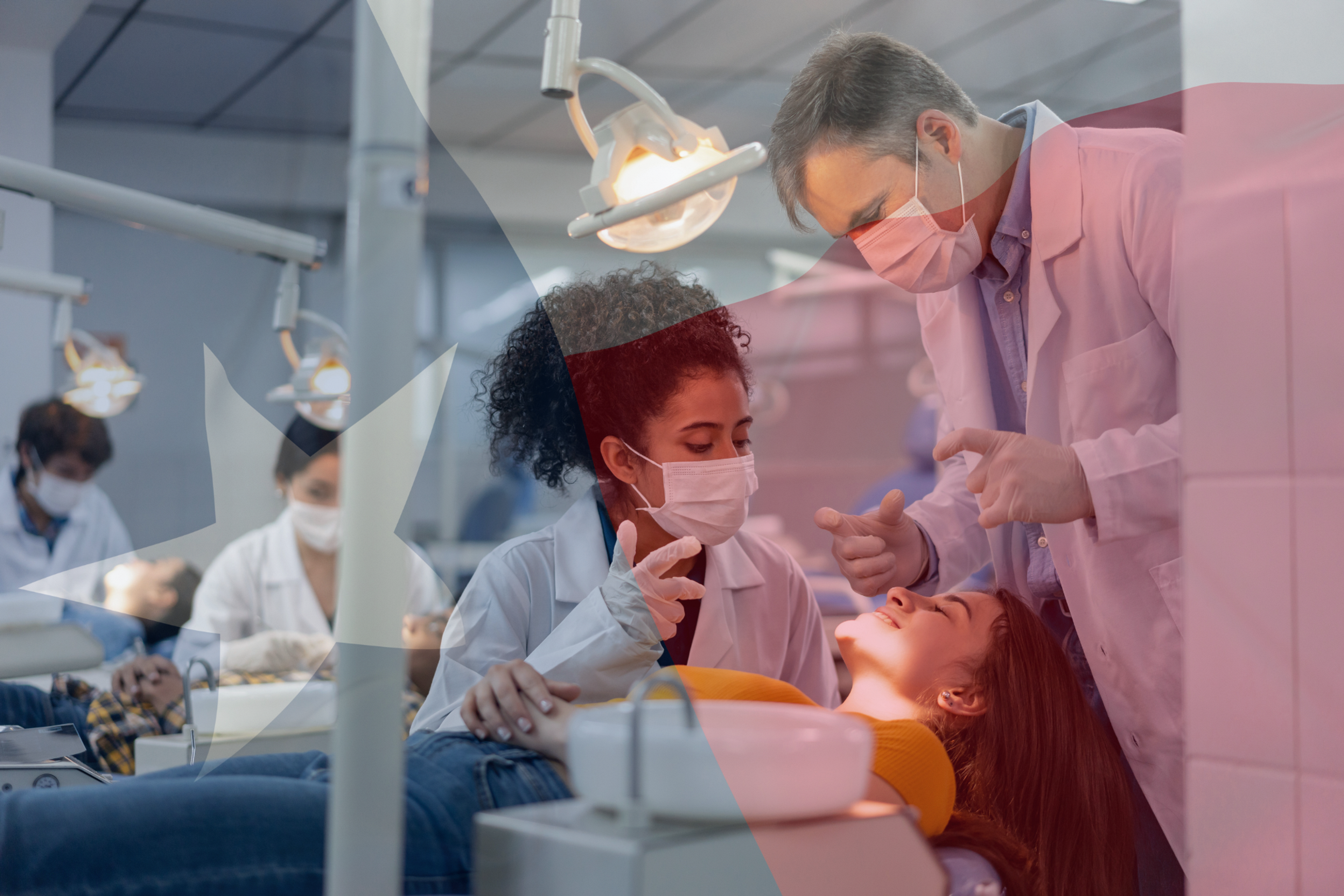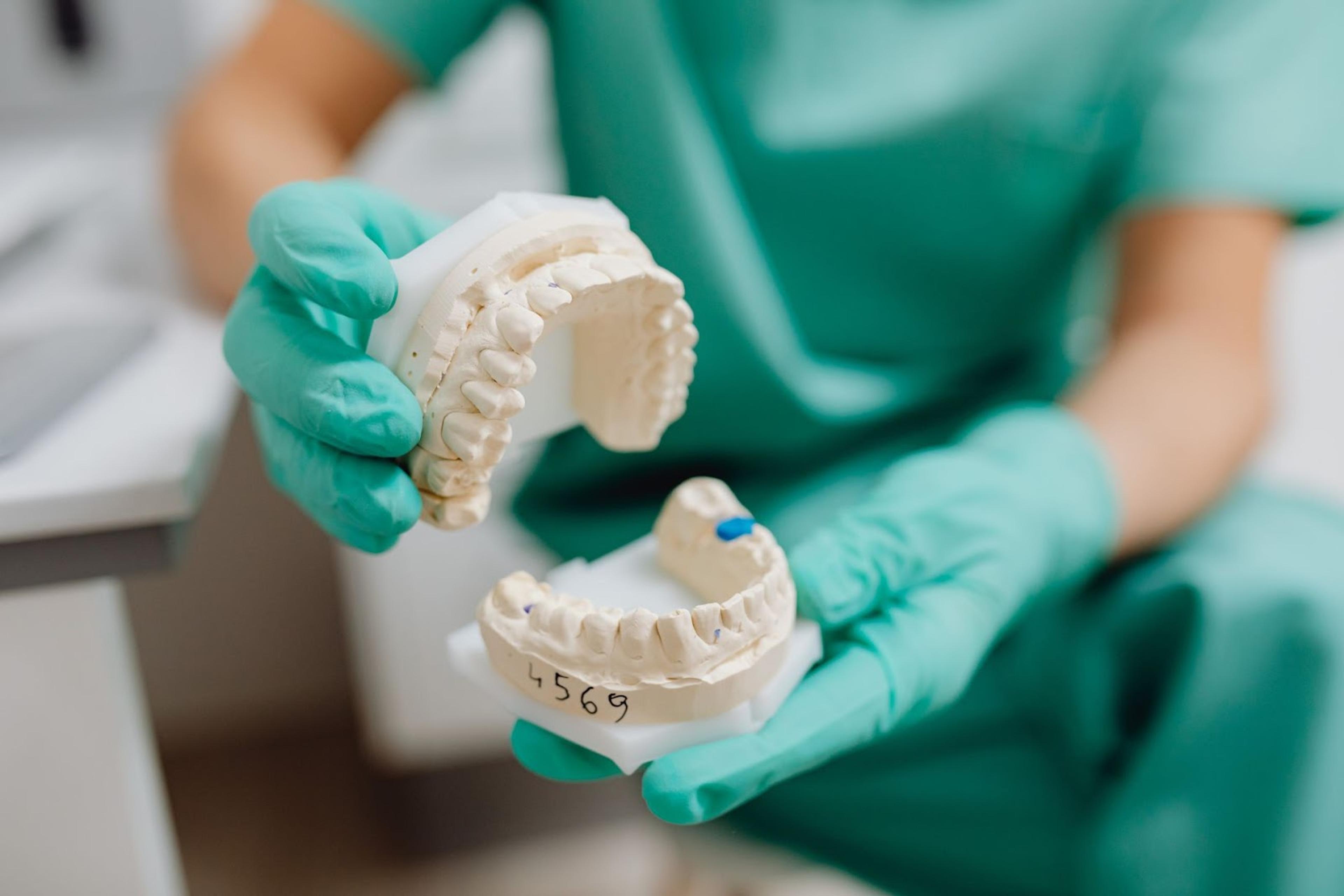The 10 Easiest Dental Schools to Get Into
Looking to pursue a career in dentistry but worried about getting accepted into a dental school? Check out our list of the easiest dental schools to get into, complete with admission requirements and tips for increasing your chances of acceptance.
Posted June 13, 2025

Table of Contents
Let’s be clear: no dental school is easy. Every accredited DDS or DMD program in the U.S. demands rigorous academics, competitive DAT scores, strong letters of recommendation, and demonstrated commitment to healthcare. However, some programs are more accessible than others based on factors like admissions criteria, applicant volume, mission focus, and in-state preference.
Whether you’re applying with a lower GPA, navigating a career pivot, or just want to build a smart school list with higher acceptance odds, this article is for you.
We’ll also cover what makes a dental school “easier,” common misconceptions to avoid, and how to use this list strategically, without compromising on quality, accreditation, or career outcomes.
What Makes a Dental School "Easy" to Get Into?
Again, no dental school is truly “easy” to get into, but some are easier than others. Here’s what actually makes a dental school fit into that bucket:
1. Lower Average GPA and DAT Scores: Dental schools publish class profiles that include the average GPA and DAT scores of admitted students. Schools with lower averages (e.g., a 3.3 GPA and 18-19 DAT) are statistically more accessible than those with 3.7+ GPAs and 21+ DATs. However, these programs still expect academic rigor (especially in science prerequisite) and a poor application will be rejected regardless of the numbers.
2. Higher Acceptance Rates / Lower Application Volume: Some programs admit a higher percentage of applicants simply because they receive fewer applications overall. These schools may be newer, less well-known, or located in less competitive regions, but they still offer full DDS training and the ability to practice dentistry upon graduation.
3. Mission-Driven or Regionally Focused Programs: Schools with a mission to serve underserved populations often look for applicants who align with that mission, even if their metrics aren’t perfect. Showing genuine commitment to that community or service area can significantly boost your chances.
4. Post-Bac or SMP Pathways: Some dental schools have built-in pipelines from post-baccalaureate or Special Master’s Programs (SMPs), which allow students to prove themselves academically before transitioning into the dental program. These pathways often have lower admissions bars initially, but are still academically rigorous and selective on the back end.
5. Newer Dental Schools: Programs founded within the last 10–15 years are often still building their reputation and infrastructure. While this may mean fewer research opportunities or lower name recognition, it can also mean more flexible admissions criteria and a stronger focus on student support and hands-on training.
The 10 Easiest Dental Schools to Get Into
University of Mississippi Medical Center School of Dentistry
- Location: Jackson, Mississippi
- Acceptance Rate: ~29%
- In the most recent class, 40 students were accepted out of 136 applicants.
- Average GPA: 3.73
- Average DAT: ~20
- Academic average: 20
- Total science: 19.3
UMMC Dental is known for its in-state preference and service-focused mission, especially for students interested in rural or underserved care. While a 3.5 GPA is still competitive, admission is significantly more accessible for Mississippi residents, and the DAT expectations are below many peer institutions. Strong in-state ties, clinical exposure, and community service can help offset lower academic metrics for applicants with a 3.0–3.3 GPA.
UMMC is one of the smallest dental schools in the country and gives strong preference to Mississippi residents. While the class size is small, the competition pool is relatively limited, which increases odds for in-state applicants. It has a robust clinical curriculum and is particularly focused on oral health disparities in the Deep South.
UMMC Dental Application Requirements
- Minimum of 90 semester hours from an accredited U.S. or Canadian institution; a bachelor's degree is strongly preferred.
- Required courses:
- English: two semesters
- Inorganic Chemistry (with lab): two semesters
- Organic Chemistry (with lab): two semesters
- Physics (with lab): two semesters
- General Biology or Zoology (with lab): two semesters
- Microbiology (with lab): One semester (must be completed at a senior college or university)
- Biochemistry: One semester (must be completed at a senior college or university)
- Mathematics: Two semesters (college algebra and trigonometry or higher level)
- Statistics or Biostatistics: One semester (general business or scientific statistics)
- Dental shadowing: minimum of 70 hours observing a general dentist.
- Four letters of recommendation:
- Two letters from biology, chemistry, or physics faculty.
- One letter from a master’s degree program, if you are enrolled in or have completed a master’s program. This letter will fulfill one of the science faculty letters.
- One letter from a dentist you have shadowed.
- One letter from a community service organization.
- Interviews with members of the Dental School Admissions Committee are required.
Review UMMC’s full application requirements: Prospective Students - University of Mississippi Medical Center
East Carolina University School of Dental Medicine
- Location: Greenville, North Carolina
- Acceptance Rate: ~16.9%
- In the most recent class, 53 students were accepted out of 314 applicants.
- Average GPA: 3.4
- Average DAT:
- Academic Average: 21.06
- Total Science: 20.13
ECU is deeply mission-driven, prioritizing North Carolina residents who have a commitment to serving rural and underserved populations. Its eight community service learning centers across the state provide students with early and immersive clinical experiences. For North Carolina applicants passionate about public health, ECU offers a strategic opportunity, especially for those whose academic metrics may be borderline for top-tier schools.
ECU School of Dental Medicine Application Requirements
- A bachelor's degree is strongly preferred.
- Required courses:
- English: Two semesters
- General Chemistry (with lab): Two semesters
- Organic Chemistry (with lab): Two semesters
- Biology (with lab): Two semesters
- Physics (with lab): Two semesters
- Biochemistry: One semester
- Mathematics: Two semesters (college algebra and trigonometry or higher level)
- Statistics: One semester
- Dental Shadowing: While specific hours are not mandated, substantial exposure to general dentistry is expected.
- Letters of Recommendation: Three letters are required, including:
- Two from science faculty members.
- One from a practicing dentist.
- Interviews: by invitation only, conducted with members of the Admissions Committee.
- Important note: ECU SoDM only accepts applicants who are legal residents of North Carolina. The school actively seeks students who have established ties to the state and a desire to serve its communities.
Review ECU’s full application requirements: Dentistry | Center for Pre-Professional Advising | ECU
University of Missouri-Kansas City School of Dentistry
- Location: Kansas City, Missouri
- Acceptance Rate: ~12.8%
- In the most recent class, 109 students were accepted out of 878 applicants.
- Average GPA: 3.76
- Average DAT:
- Academic average: 20.5
- Total science: 19.8
UMKC stands out as the only public dental school in Missouri and Kansas, training approximately two-thirds of the dentists practicing in Missouri. Established in 1881, it has a long-standing commitment to serving the region's oral health needs. Located on the Health Sciences Campus in Kansas City, the school benefits from close proximity to major hospitals and other health professional schools, fostering a collaborative healthcare environment. The school is also recognized for its research contributions in oral and craniofacial sciences and provides students with opportunities to engage in community outreach, delivering care to underserved populations. UMKC gives preference to residents of Missouri and Kansas, reflecting its commitment to serving the region's oral health needs.
UMKC Dental Application Requirements
- Minimum of 90 semester hours from an accredited U.S. institution; a bachelor's degree is strongly preferred.
- Minimum required DAT academic average: 16
- Required Courses:
- English: Two semesters
- General Chemistry (with lab): Two semesters
- Organic Chemistry (with lab): Two semesters
- Biology (with lab): Four semesters
- Physics (with lab): Two semesters
- Biochemistry: One semester
- Mathematics: Two semesters (college algebra and trigonometry or higher level)
- Statistics: One semester
- Dental Shadowing: A minimum of 100 hours in five different settings exploring the profession of dentistry.
- Letters of Recommendation: A minimum of three letters of recommendation or one pre-health advisory committee letter is required.
- Interviews: by invitation only, conducted with members of the Admissions Committee.
Review UMKC’s full application requirements: Traditional Admissions | University of Missouri-Kansas City Academic Catalog
Midwestern University College of Dental Medicine – Arizona
- Location: Glendale, AZ
- Acceptance Rate: ~14.7%
- In the most recent class, 383 students were accepted out of 2,606 applicants.
- Average GPA: 3.41
- Preferred DAT:
- Academic average: 17
- Total science: 17
Midwestern AZ is known for its modern facilities, heavy clinical emphasis, and supportive environment, making it especially appealing to hands-on learners. While the school attracts a large number of applicants, its average GPA and DAT scores are considered accessible, especially for candidates demonstrating strong upward academic trends or post-baccalaureate achievements. Notably, CDMA does not require a bachelor's degree for admission, providing flexibility for diverse applicant backgrounds.
Midwestern University CDMA Application Requirements
- A bachelor's degree is not mandatory but is strongly recommended.
- Required courses (C grade or better):
- Biology with lab: Two semesters
- General Chemistry with lab: Two semesters
- Organic Chemistry with lab: Two semesters
- Physics with lab: Two semesters
- English Composition: Two semesters
- Biochemistry: One semester
- Mathematics: Two semesters (college algebra and trigonometry or higher level)
- Statistics: One semester
- Dental Shadowing: While specific hours are not mandated, substantial exposure to general dentistry is expected.
- Letters of Recommendation: Three letters are required:
- One must be from either a pre-dental advisory committee or a science professor.
- One must be from someone with a D.D.S./D.M.D. degree.
- One must be from someone who can testify to the integrity and ethical standards of the applicant.
- Interviews: by invitation only, conducted with members of the admissions committee.
Review Midwestern AZ’s full application requirements: College of Dental Medicine-Illinois | Midwestern University
University of Puerto Rico School of Dental Medicine
- Location: San Juan, Puerto Rico
- Acceptance Rate: ~11%
- In the most recent class, 41 students were accepted out of 374 applicants.
- Average GPA: 3.46
- Average DAT:
- Academic average: 18.7
- Total science: 17.4
This CODA-accredited school offers instruction primarily in Spanish and has a unique cultural and regional focus. U.S. citizens, including Puerto Rico residents, benefit from lower tuition, and acceptance stats are generally less competitive than mainland schools. It’s a compelling option for bilingual applicants or those committed to serving Latino populations. Strong preference is given to residents of Puerto Rico, and only bilingual applicants will be considered.
UPR SDM Application Requirements
- A bachelor's degree is strongly preferred.
- Required courses:
- English: three semesters
- Spanish: three semesters
- Biology or zoology: two semesters
- Physics: two semesters
- Chemistry: two semesters
- Organic chemistry: two semesters
- Social sciences: two semesters
- Interview: By invitation only, conducted with members of the Admissions Committee.
- Portfolio: This is a summary of the candidate's educational history and life experiences. This must be submitted digitally once the school requests it.
Review the University of Puerto Rico’s full application requirements: Universidad de Puerto Rico - Doctor of Dental Medicine
University of Detroit Mercy School of Dentistry
- Location: Detroit, Michigan
- Acceptance Rate: ~24%
- Average GPA: 3.68
- Average DAT:
- Academic average: 20.4
- Total science: 20.6
Detroit Mercy Dental offers a holistic admissions process that values academic achievement alongside service, leadership, and interpersonal skills. With an acceptance rate of approximately 24%, it is more accessible than many dental schools, making it a strong option for applicants with solid academic credentials and a commitment to community service. The school's urban location in Detroit provides students with early exposure to diverse clinical populations and ample opportunities for community outreach. Its mission, rooted in Jesuit and Mercy traditions, emphasizes the development of socially and ethically sensitive oral health professionals.
Detroit Mercy Dental Application Requirements
- Education: Completion of at least 90 semester hours from an accredited U.S. or Canadian institution; a bachelor's degree is strongly preferred.
- Required courses:
- English: 2 semesters
- General Biology with lab: 2 semesters
- General Chemistry with lab: 2 semesters
- Organic Chemistry with lab: 2 semesters
- Physics with lab: 2 semesters
- Biochemistry: 1 semester
- Mathematics: 2 semesters (college algebra and trigonometry or higher level)
- Statistics or Biostatistics: 1 semester
- Shadowing Experience: A minimum of 100 hours of shadowing with a non-relative general dentist educated and practicing in the U.S. or Canada is required. Dental assisting hours may be accepted in place of shadowing.
- Two letters of recommendation:
- Strong preference given for letters from biology or chemistry professors. A single (1) composite/committee letter can take the place of the two letters from science faculty. Letters from research mentors do not fulfill this requirement unless the applicant has also taken a class with that professor
- One letter from a non-relative general dentist (D.D.S. or D.M.D.) attesting to the applicant having spent a reasonable amount of time with the practitioner chair side exploring the dental profession.
- Interviews: Selected applicants will be invited for an interview and required to complete an online assessment.
Review Detroit Mercy’s full application requirements here: University of Detroit Mercy School of Dentistry Admissions page.
Missouri School of Dentistry & Oral Health
- Location: Kirksville, Missouri
- Acceptance Rate: ~4%
- In the most recent class, 60 students were accepted out of 1,500 applicants.
- Average GPA: 3.50
- Average DAT: 18.9
MOSDOH, part of A.T. Still University, emphasizes whole-person care and public health dentistry. The school reserves many seats for Missouri residents and includes a unique clinical model where students complete their third- and fourth-year rotations in community health centers across the state. This distributed clinical model is ideal for those drawn to service-based care and underserved communities.
MOSDOH Dental Application Requirements
- Minimum of 90 semester hours from an accredited U.S. institution; a bachelor's degree is preferred.
- Required courses:
- General Biology with lab: 8 semester hours
- General Chemistry with lab: 8 semester hours
- Organic Chemistry with lab: 8 semester hours
- Physics with lab: 8 semester hours
- Human Anatomy: 3 semester hours
- Human Physiology: 3 semester hours
- Biochemistry: 3 semester hours
- English Composition: 6 semester hours
- Letters of Recommendation:
- Two letters from science professors.
- One letter from a dentist you have shadowed.
- Dental Shadowing: A minimum of 100 hours is recommended.
Review MOSDOH’s full application requirements here: MOSDOH - Preparing For Admission.
Roseman University College of Dental Medicine
- Location: South Jordan, Utah
- Acceptance Rate: ~4.8%
- In the most recent class, 564 students were accepted out of 11,759 applicants.
- Average GPA: 3.32
- Average DAT:
- Academic average: 19.8
- Total science: 19.4
Roseman University offers a distinctive three-year DMD program that emphasizes a block curriculum and pass/fail grading system, promoting student well-being and mastery-based progression. The program's innovative approach allows students to focus intensively on one subject at a time, reducing academic pressure and fostering a supportive learning environment. While the acceptance rate is competitive, the average GPA and DAT scores are more accessible compared to many other private dental schools, making it an appealing option for applicants with strong upward academic trends or post-baccalaureate work.
Roseman Dental Application Requirements
- Minimum GPA: 3.0 in the last 30 hours of science courses
- Minimum DAT Scores: 17 in Academic Average, Total Science, Perceptual Ability, and Reading Comprehension
- Prerequisite coursework: Completion of at least 60 semester hours (90 quarter hours) from an accredited U.S. institution, including:
- Biology with lab: 8 semester hours
- General Chemistry with lab: 8 semester hours
- Organic Chemistry with lab: 8 semester hours
- Physics with lab: 8 semester hours
- English Composition: 6 semester hours
- Biochemistry: 3 semester hours
- Microbiology: 3 semester hours
- Anatomy and Physiology: 6 semester hours
- Statistics: 3 semester hours
- Three letters of rec, including:
- Two from science faculty members
- One from a health professional who knows the student well, except family members.
- Dental Shadowing: 50 hours required.
- Interview: by invitation only
Review Roseman’s full application requirements: DMD Admission Requirements & Information - Roseman University
Ohio State University – College of Dentistry
- Location: Columbus, Ohio
- Acceptance Rate: ~12.5%
- Average GPA: 3.65
- Average DAT:
- Academic average: 21
- Total Science: 20.6
As the only public dental school in Ohio, The Ohio State University College of Dentistry offers a comprehensive curriculum that integrates early clinical experiences with advanced digital dentistry technologies. Students benefit from state-of-the-art facilities, including a 136,000-square-foot expansion featuring simulation labs and digital design studios. The program emphasizes a comprehensive care model, preparing students to manage diverse patient needs effectively. Additionally, Ohio State's strong research initiatives and community outreach programs provide students with opportunities to engage in meaningful service and interdisciplinary collaboration.
Ohio State Dental Application Requirements:
- Completion of at least 90 semester hours from an accredited U.S. or Canadian institution; a bachelor's degree is preferred.
- Required courses:
- Biological Sciences with lab: 2 semesters
- General Chemistry with lab: 2 semesters
- Organic Chemistry with lab: 2 semesters
- Physics with lab: 2 semesters
- English Composition: 2 semesters
- Biochemistry: 1 semester
- Anatomy and Physiology: 1 semester
- Three letters of recommendation:
- Two from science professors.
- One from a dentist.
- Shadowing Experience: A minimum of 40 hours of dental shadowing is recommended.
- Interviews: by invitation only, based on academic and non-academic qualifications.
Arizona School of Dentistry & Oral Health
- Location: Mesa, Arizona
- Acceptance Rate: ~13%
- Average GPA: 3.43
- Average DAT: 19.62
Established in 2003, ASDOH is Arizona’s first dental school and is renowned for its commitment to public health and community-based education. Students engage in extensive clinical rotations at community health centers, serving underserved populations across the nation. The curriculum integrates public health principles, and approximately 25% of students pursue a dual DMD/MPH degree. ASDOH's emphasis on whole-person healthcare and leadership development prepares graduates to be compassionate, community-minded oral health providers.
ASDOH Dental Application Requirements
- Minimum GPA: 2.75 (3.0 recommended)
- Prerequisite courses:
- Biology with lab: 8 semester hours
- General Chemistry with lab: 8 semester hours
- Organic Chemistry with lab: 8 semester hours
- Physics with lab: 8 semester hours
- English Composition/Technical Writing: 6 semester hours
- Biochemistry: 3 semester hours (recommended)
- Microbiology: 3 semester hours (recommended)
- Two letters of rec:
- One from a science faculty member or pre-dental committee
- One from a practicing dentist
- Shadowing experience: Not required, but 100 hours recommended (up to 50 hours of virtual shadowing accepted)
- Interviews: by invitation only.
Review ASDOH’s full application requirements here: ASDOH - Admission Requirements for DMD
How to Strengthen Your Application for Lower-Barrier Dental Schools
Even if you're applying to schools with lower average GPAs or DAT scores, competition is still fierce, and a strong application can dramatically improve your chances of getting in (and earning scholarships). This section gives tactical, expert-level advice for applicants looking to stand out at more accessible programs.
1. Crush the personal statement.
At many of these schools, the personal statement can carry disproportionate weight, especially if your GPA or DAT is borderline. This is your chance to explain not just why you want to be a dentist, but why your path has prepared you to thrive in a clinical, high-responsibility profession.
Expert Tip: Anchor your story in 2–3 high-leverage experiences – shadowing, patient interaction, academic growth, or family caregiving. Show how you’ve built the emotional intelligence, grit, and curiosity that dental school demands.
2. Highlight upward academic trends, not just the final GPA.
If your cumulative GPA is below 3.4, admissions readers will look closely at your science GPA, recent coursework, and trajectory. A poor freshman year followed by consistent A’s in upper-division science courses (anatomy, physiology, biochem) is often seen as a positive indicator of readiness.
So if you do have that upward trend, make sure to showcase it. Also, if you’ve done post-bac or SMP coursework, make it clear how you’ve re-proven your academic ability in a structured setting.
3. Secure letters from people who can speak to who you are, not just your grades.
At schools with holistic review, recommendation letters carry real weight. A science professor who saw you lead a study group, or a dentist who watched you interact with patients, will be far more impactful than someone who barely knows you. Strong letters should include specific anecdotes, not just vague praise, and they should come from someone who’s actually observed you in an important setting.
Expert Tip: Brief your recommenders. Share your resume, goals, and a reminder of the most meaningful things you did together. Make it easy for them to advocate for you.
The Bottom Line
Getting into dental school is never easy, but some programs are statistically and structurally more accessible than others. If your GPA or DAT scores aren’t top-tier, that doesn’t mean your dream of becoming a dentist is out of reach. It means you need to be smarter, more strategic, and more self-aware in how you apply.
The schools on this list offer real opportunities but they still expect excellence in the form of upward academic trends, clinical experience, mission alignment, and maturity. Admissions committees at “easier” schools often read thousands of applications from students with similar numbers. The applicants who stand out are those who’ve done the work to understand themselves, clarify their goals, and tell a story that reflects both professional readiness and human compassion.
Build a balanced school list. Apply early. Control what you can. And never confuse lower stats with lower standards because the responsibility you’re preparing for is the same, no matter where you train.
Improve Your Chances of Getting In
If you’re applying with a lower GPA, a sub-19 DAT, or an unconventional path into dentistry, your application needs more than just effort: it needs strategy. Working 1:1 with a dental admissions coach can help you identify the right schools for your profile, craft a standout personal statement, and position your story to rise above the stats. Don’t leave it to chance. Get expert eyes on your application and turn your potential into an acceptance. Browse all coaches here.
Next, read:











